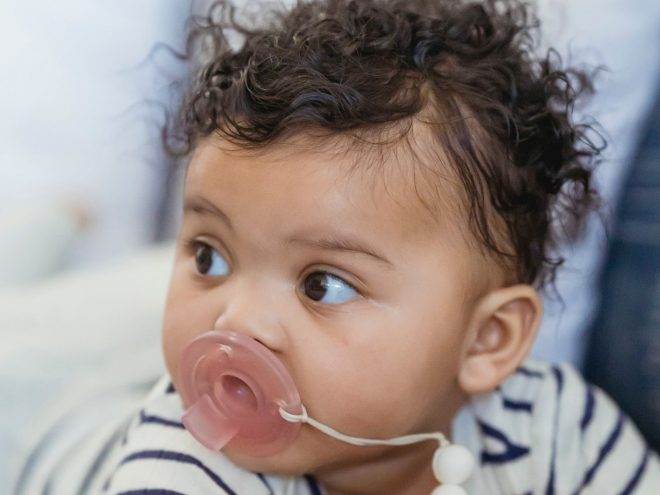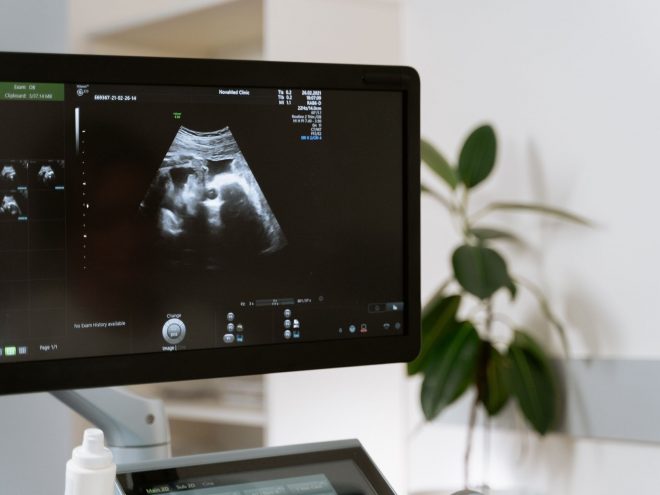Are there any safe medications during pregnancy? The answer is somewhat complicated. Yes, there is a list of over-the-counter drugs considered safe during pregnancy. However, the effects of some medications on unborn babies are unknown. This can leave the decision of taking medicine during pregnancy a stressful decision-making process for many women. When in doubt, consult with your OB/GYN practice, and they’ll be able to provide the guidance you seek.
If you currently take prescription medication for a chronic illness like migraines or depression, contact your doctor to discuss if you can continue your current medication regimen while trying to get pregnant or throughout your pregnancy. Some medicines have a proven track record of being unsafe for unborn babies, while others do not.
It can be a difficult decision to continue medication while pregnant, even if you know it’s best for your health. If you are ever feeling guilty about your decision to take pre-approved drugs during your pregnancy, keep in mind that a healthy mother makes for a healthy child. There are safe medications that you can take and should use if you’re comfortable doing so.
Safe Medications During Pregnancy
According to the CDC, nine out of ten women report taking medicine during their pregnancy. At least seven out of the ten women took a prescription medication. If you’re feeling sick and need to take medication, know that there is an entire list of drugs for you to use. However, consult with your physician before continuing your current prescription medications.
Allergies
If you suffer from seasonal allergies, these over the counter treatments are safe to continue during your pregnancy:
- Loratidine or Claritin
- Diphenhydramine or Benadryl
- Cetirizine or Zyrtec
- Saline Sprays or Neti-Pots
Colds and Coughs
For headache relief associated with colds, use acetaminophen. For other symptoms, use the following drugs:
- Cough drops
- Vicks Vapor Rub
- Saline Nasal Drops
- Diphenhydramine or Benadryl: however, stay away from these medicines’ sustained action (SA) or multi-symptom form.
- Dextromethorphan or Robitussin: purchase a version that isn’t SA or multi-symptom.
- Guaifenesin or Mucinex: stay away from SA and multi-symptom forms.
- Pseudoephedrine or Sudafed: only use this drug after your first trimester.
- Do not use Nyquil because of its alcohol content.
Constipation
During pregnancy, you may experience changes within your digestive tract. Try any of these safe solutions for constipation:
- Fiber powders like Metamucil, Benefiber, or MiraLax.
- Laxatives like Dulcolax: use these sparingly.
- Prune juice or other fruit juices high in fiber.
Hemorrhoids
Unfortunately, hemorrhoids can be a common occurrence for some women during pregnancy. Thankfully there is an easy way to treat them when they happen!
- Preparation H
- Tucks Medicated Pads or Medicated Ointment
Nausea and Upset Stomach
When you experience heartburn, indigestion, or upset stomach, these drugs are safe for consumption:
- Antacids or TUMS: take to reduce stomach indigestion and heartburn.
- Simethicone or Mylicon: used for gas pain.
- Immodium: used to help relieve symptoms like diarrhea.
Pain Relief
For headache or other pain relief options, use the following:
- Tylenol or acetaminophen: take up to 4,000 mg a day or otherwise directed by your doctor.
- Do not take aspirin (Bayer) or ibuprofen (Advil) for pain relief during your pregnancy.
Sleep
Many women struggle to get a good night of sleep while pregnant, which is quite understandable since you’re currently the home to a baby that likes to squirm and kick at all hours of the night. Here are some safe and effective sleep aids:
- Diphenhydramine or Unisom SleepGels: the active ingredient that makes you tired in Unisom is what makes you sleepy in Benadryl – both are antihistamines. If you have any concerns, talk to your doctor before starting the drug.
Yeast Infection
If you’ve ever had a yeast infection before, you know just how uncomfortable they can be. Unfortunately, the likelihood of a woman getting a yeast infection during pregnancy increases more than at any other time in her life. You must treat your yeast infection while still pregnant. If you don’t, you risk passing the infection to your child during delivery, giving them thrush.
If you present any yeast infection symptoms – an increase in discharge, a strong-smelling discharge, or redness, burning, or itching on the vagina, contact your doctor to make an appointment for testing. Thankfully there are safe medications to treat this infection:
- Miconazole or Monistat: you can find this option over the counter. However, your doctor may recommend another brand or alternative for your infection.
Safe Medications During Pregnancy
While it can be a difficult decision to use medication during your pregnancy, do know that there is a pre-approved list of drugs that are safe for use. And remember, when the mother is healthy, the child is healthy too.





